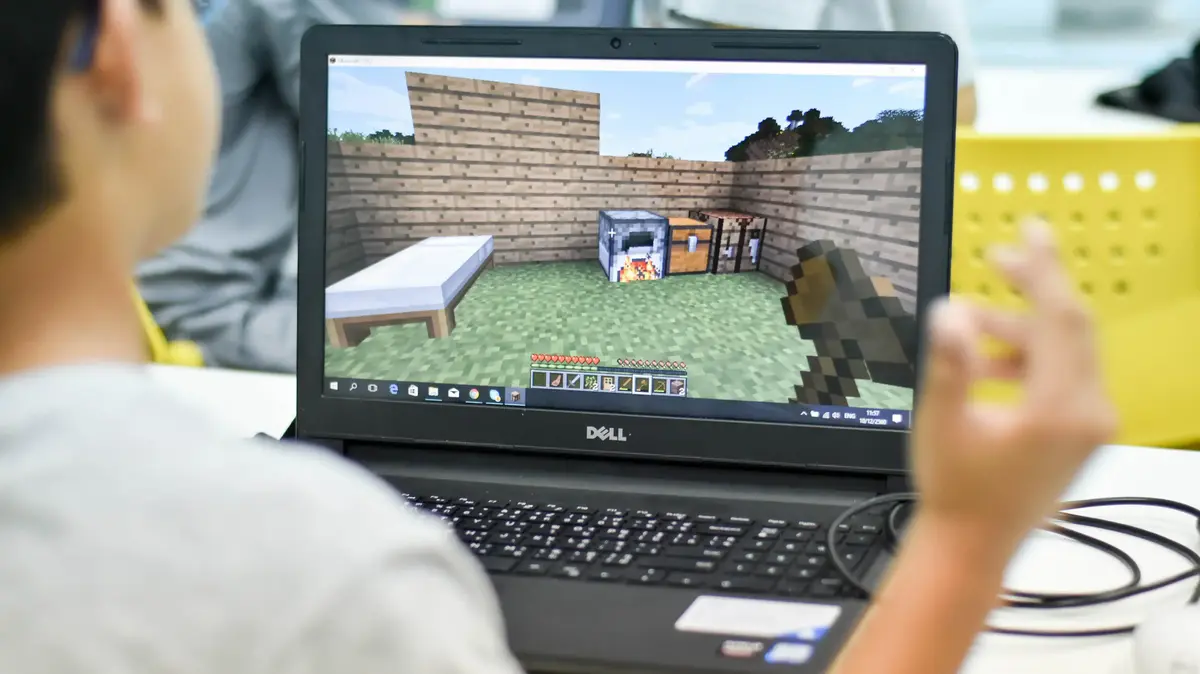health
parenthood
Child health
Kids who play computer games can benefit from this in the long run
If you have small children, games like Fortnite, Minecraft, Sonic and Super Mario are probably no strangers to you.
During the time we are all closed in homes more and more children are spending more and more hours in front of the screen.
New research suggests that this is not necessarily a bad thing
Tags
Children
agree
Video games
Walla!
health
Tuesday, 13 October 2020, 07:34
Share on Facebook
Share on WhatsApp
Share on general
Share on general
Share on Twitter
Share on Email
0 comments
Familiar?
Child playing minecraft (Photo: ShutterStock)
Many parents are very concerned about the screen time of their children who have only recently grown up with quarantine, boredom and even zoom tasks.
But here's a small bright spot - a new study published in Frontiers in Human Neuroscience argues that video games may lead to improvements in cognitive tasks, even years after the child stops playing.
A study from the University of Oberta de Catalunya (UOC) involved 27 people (aged 18-40) who had previously played video games or those who had never touched them.
Each participant was tested on his or her cognitive skills three times during the study: before being asked to play an hour and a half of video games for 10 consecutive days, then immediately after the training period, and finally 15 days after the end of the experiment.
More on Walla!
NEWS
It's great that you're limiting screen time to kids.
But now - stop
To the full article
The game in question was Super Mario 64, one that has been shown to have an effect on structural changes in the brain.
One group was subjected to magnetic stimulation to the brain (TMS), a technique of non-invasive brain stimulation, to see if it could improve their game performance.
Participants from both teams improved their game performance (required after training), but apparently had no beneficial effect as a result of the stimulus.
Participants performed the working memory tasks differently before beginning the game training, but showed similar results after 15 hours of play.
More on Walla!
NEWS
How many hours of TV a day endanger your life?
This is the price your kids will pay for the closure (and it's not easy)
Stop smoking with the largest rehab institute in Israel
Originally, the researchers set out to test whether a combination of video game training and non-invasive brain stimulation could be used to improve cognition, but the results showed otherwise.
They then turned to other variables that might explain the differences in memory task scores.
Age and gender were excluded, leaving one variable - the game experience in the past.
The benefits last for years.
Brain (Illustration: Giphy)
The researchers found that children who played video games during adolescence enjoyed better performance on important cognitive tasks than those who had never played before, and although video game training with Super Mario 64 equaled the playing field, the benefits clearly lasted for years.
"People who were avid gamers before adolescence, even though they had not played for years, performed better the cognitive tasks given to them, which require mental retention and manipulation of information to achieve a result," said Mark Pallaus, a doctoral researcher at UOC.
"People who played regularly as children were good at stimulating the processing of 3D objects, although these differences were reduced after the training period in video games, when the two teams showed similar levels," Palaeus added.
While video games appear to have a beneficial effect on some cognitive tasks, the researchers stressed that this effect is limited and may not apply to many out-of-game scenarios.
It is also possible that activities other than the game can achieve similar results.
Since this study is generally designed for a different purpose, further research is needed before video games are marketed as something that enhances intelligence.
Share on Facebook
Share on WhatsApp
Share on general
Share on general
Share on Twitter
Share on Email
0 comments









